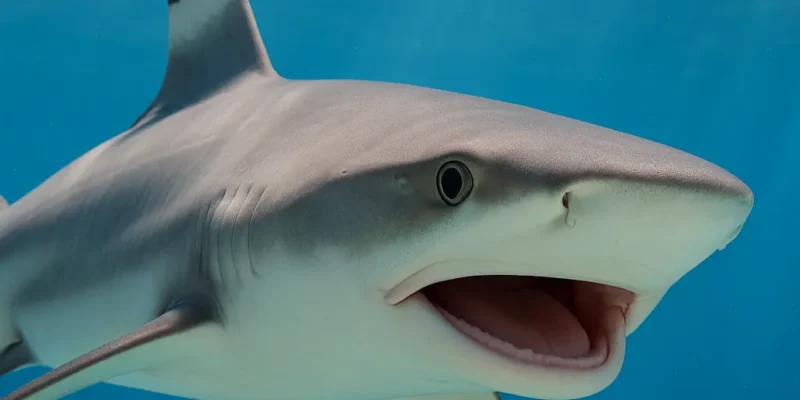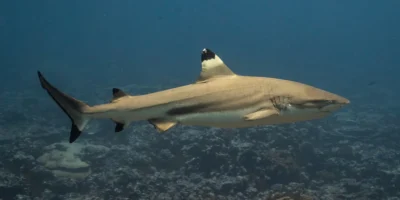Sharks without sharp teeth may sound reassuring to swimmers – but for the oceans it would be disastrous. A new study shows that increasing ocean acidification attacks the teeth of top predators and could weaken their hunting efficiency. This would affect shark populations and the stability of entire marine ecosystems.
What lies behind acidification
Ocean acidification occurs when seas rapidly absorb more carbon dioxide and the pH level drops. Model calculations suggest that the global average, currently around pH 8.1, could fall to 7.3 by the year 2300 – with profound effects on marine organisms.
The experiment: 60 shark teeth in the acid test
For the experiment, researchers placed 60 freshly shed teeth from blacktip reef sharks in artificial seawater: once with today’s pH 8.1, once with a projected pH 7.3. The teeth came from a German aquarium (six male, four female animals). After eight weeks, the teeth in the more acidic tank showed about twice as much damage. Particularly striking were increased root corrosion and altered serrated edges, reports study leader Maximilian Baum from the Institute of Zoology and Organismic Interactions at Heinrich Heine University.
“We see increased root corrosion and altered serrations – a clear indication of material-damaging effects.” – Maximilian Baum
More stress for already threatened predators
Damaged teeth add to existing pressures, such as prey scarcity caused by overfishing. More sensitive species – with fewer rows of teeth or slower replacement – could be affected earlier. Previous studies have already shown damage to skin denticles from acidification.
Can sharks counteract it?
Baum considers adaptations possible: more frequent tooth replacement or improved repair processes. External experts also share this cautiously optimistic view. Paleobiologist Lisa Whitenack (Allegheny College) emphasizes that faster tooth replacement could partly compensate for the losses – and even corroded teeth can still function.
“The crucial point is whether the observed damage actually impairs cutting or piercing ability.” – Lisa Whitenack
What matters now
To slow acidification, reducing human-made CO2 emissions is key. The study makes it clear: even moderate pH decreases can alter the biology of large predators – with far-reaching consequences for food chains and the functioning of the oceans.





